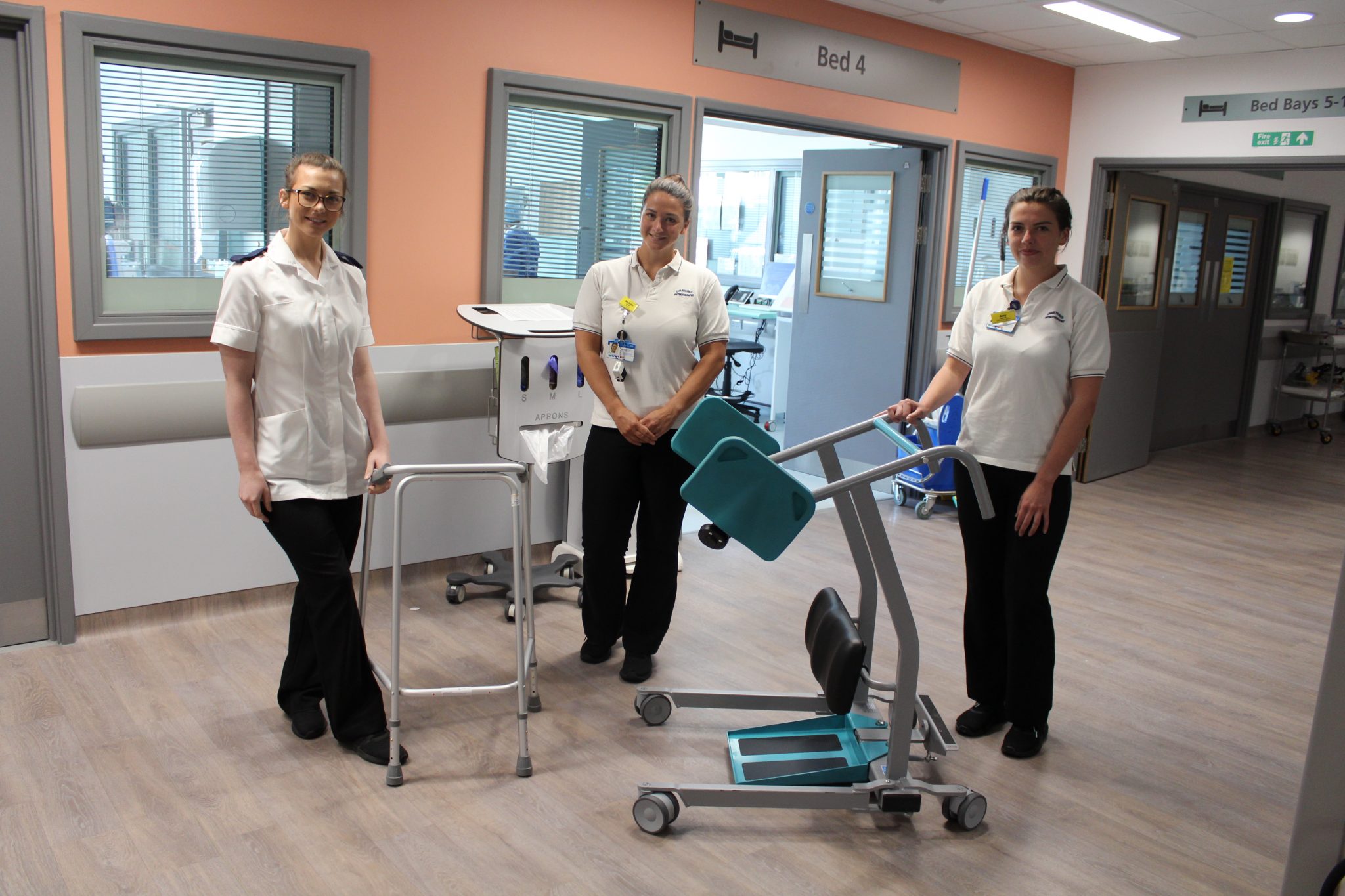Physiotherapists start to work with patients in critical care as soon as possible after admission and this vital intervention is never more important than now with so many people battling COVID-19.
Michelle Collins is a Physiotherapy Team Leader with Walsall Healthcare NHS Trust and is working with a number of patients who have been ventilated on the Intensive Care Unit at the Manor Hospital.
The physical and psychological effects of critical care are inevitable but can be mitigated and need to be addressed in a timely way whilst the patient is in critical care.
“I’m sure some people will be surprised to learn how early therapists become involved in a patient’s care on ICU, particularly when they see images of patients on ventilators looking critically unwell,” said Michelle.
“But if we want to properly assess and manage patients and do all we can to give their recovery journey the best help possible early intervention is crucial. A hospital stay can adversely affect patients. This is of particular concern with COVID-19 patients who might have a prolonged period of ventilation and sedation and as a result are unable to maintain their mobility as muscles begin to waste within three days of prolonged bed rest.
“Respiratory physiotherapy will include tapping the chest to loosen congestion and aid secretion clearance, along with turning patients on to their front to improve ventilation. We work through various stages to eventually wean a patient off ventilation with a focus on strengthening muscles, breathing exercises and mobilisation therapy. Every patient is different and our support is specific to their needs and the things that matter most to them.
“This early involvement can also shorten the patient’s length of stay in hospital and improve their recovery. There will be some things that a patient just can’t manage because they are too weak and tire easily but working with therapists means they set themselves targets and are motivated to keep persevering. It is so rewarding to help a patient achieve their goal and we are there with their families willing them to succeed. It’s as important to us as it is to them because we want them to get back as best they can to the life they had before this terrible virus.”
Michelle added that therapists constantly communicate with patients too.
“We constantly encourage them and speak to them as we don’t know what they might retain from their critical care experience. In the future they might remember something or have a flashback so we treat our patients as if they have full consciousness and capacity, which I think is very reassuring for their families. They are understandably concerned that they can’t be with us to support these sessions which is what would happen if we weren’t in the middle of a pandemic.”

